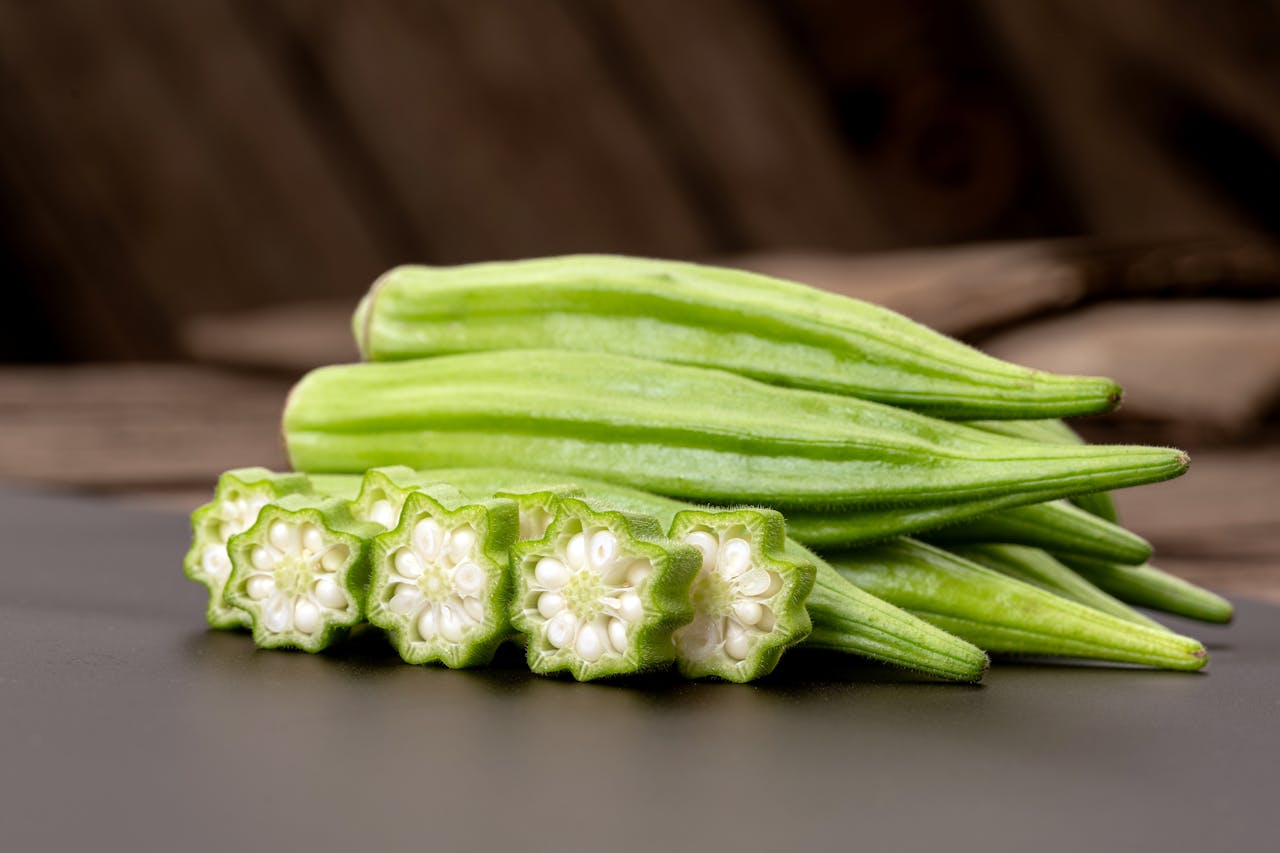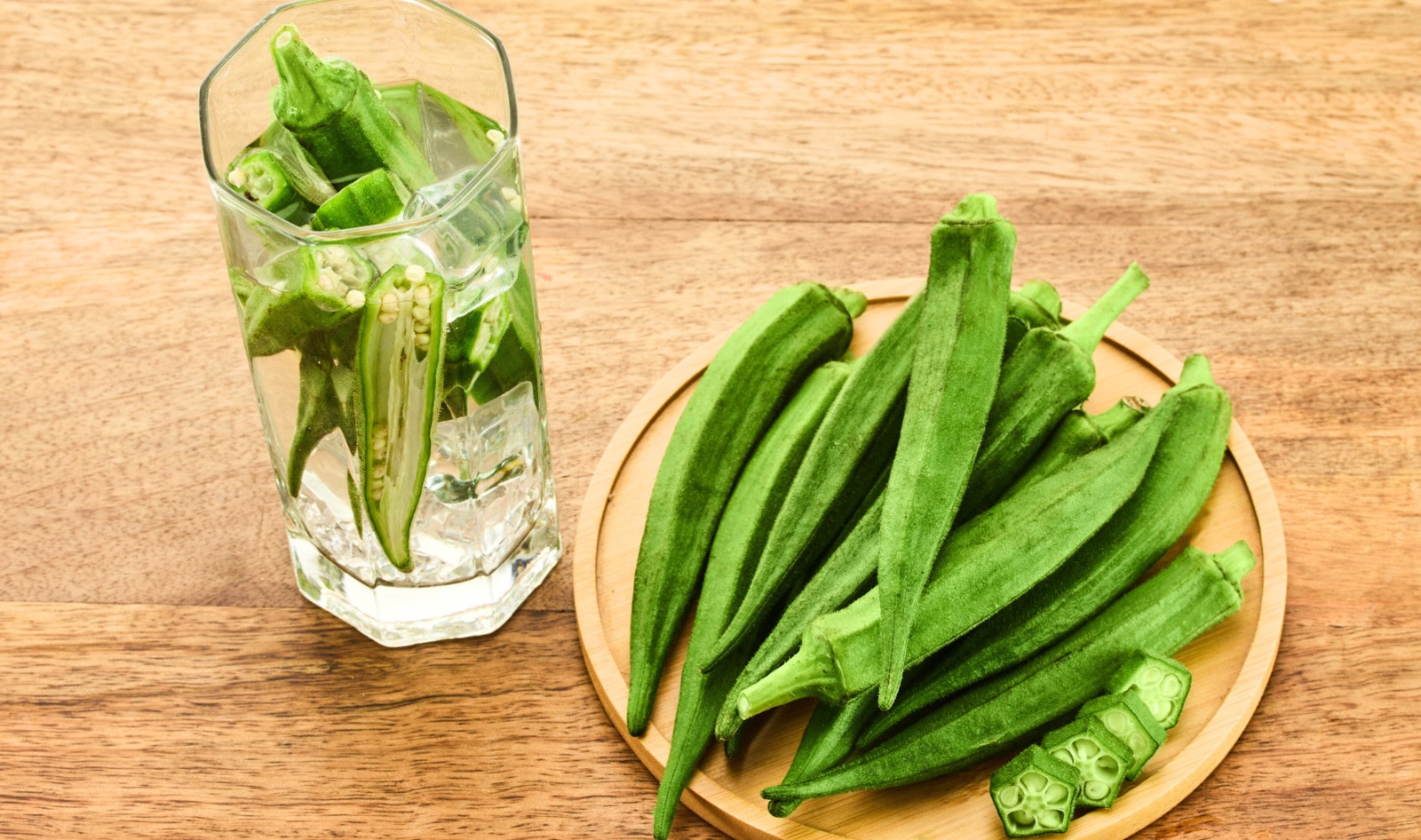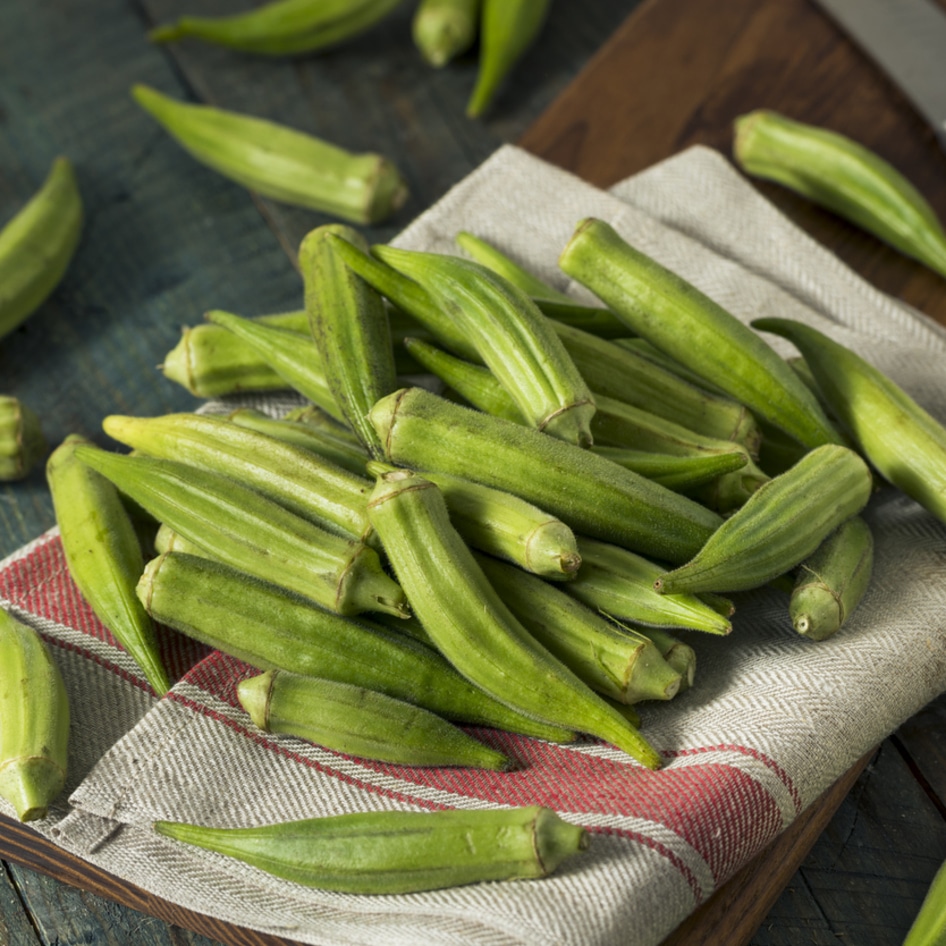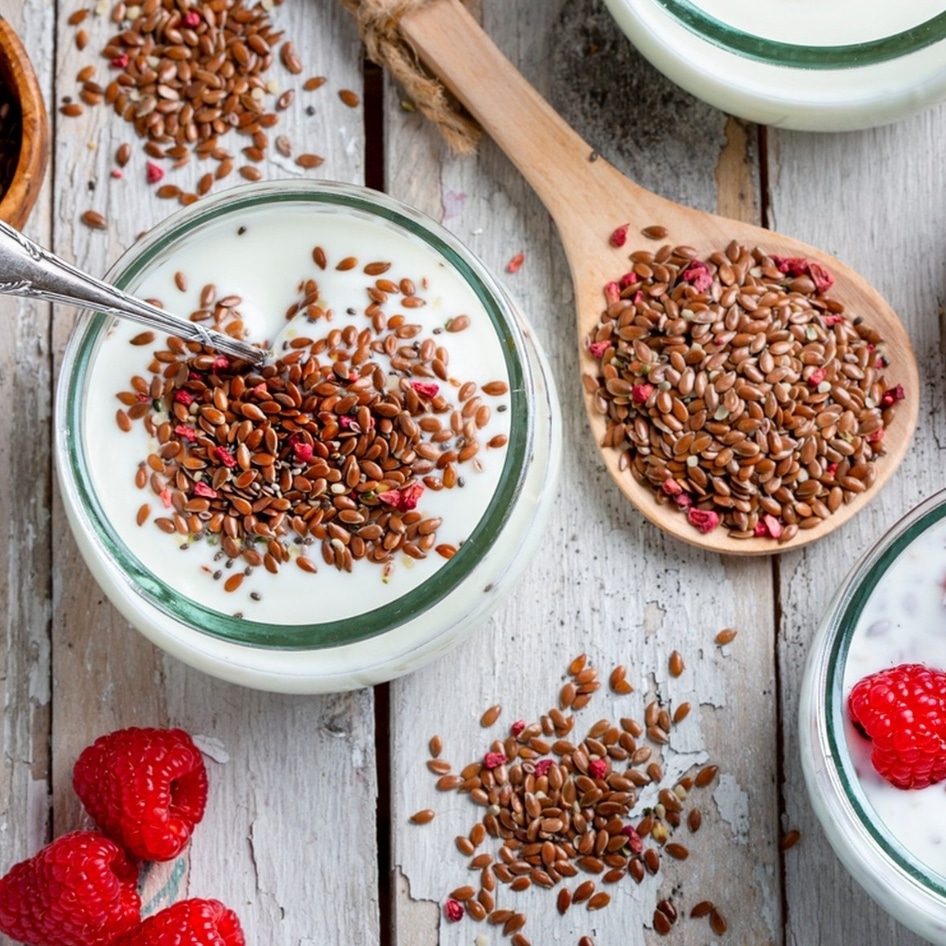Across TikTok, there are countless videos, many of which boast millions of views, shouting about the benefits of drinking okra water once a day. Creators on the social media app claim that it can benefit everything from skin health to digestive health, and even help reduce vaginal dryness and maybe even make your hair grow faster.
If you took all of these videos at face value, you’d probably come away thinking that drinking a glass of okra water might just transform your life for the better. But as with all TikTok-promoted health advice, it’s important to take any dramatic claims about okra water with a pinch of salt.
What is okra water?
Okra—which is a flowering plant popular all over the world in recipes like gumbo in the US and bhindi masala in India—is known for its particularly slimy texture, which comes from the thick mucilage that runs through the plant. It’s this slimy substance that forms the basis of okra water.
 Maryam Hampton
Maryam Hampton
To make okra water, the okra is usually sliced and soaked in water overnight. In the morning, the plant pieces are removed, leaving behind the infused water. Okra water is usually consumed first thing in the morning on an empty stomach.
Does okra water actually have any benefits?
Research suggests that most health claims on TikTok aren’t factually accurate. In fact, earlier this year, one survey from MyFitnessPal and Dublin City University concluded that only around two percent of videos on the app feature accurate diet and nutrition advice. It also found that nearly 90 percent of Millennial and Gen Z users on the app have looked to these videos for guidance.
Alongside okra water, popular TikTok trends include the carnivore diet, the sardine-only diet, and eating soil (yes, that effectively means dirt). Most of these are not backed by science or recommended by experts.
“People need to better understand what’s in the food they’re eating, dig more into the science behind social trends, and find trusted sources to guide them,” Katie Keil, Chief Marketing Officer of MyFitnessPal, said in a statement.
While some trends might have serious consequences, including nutritional deficiencies, experts do tend to agree that drinking okra water likely isn’t dangerous. In fact, it is a good source of nutrients, including fiber, manganese, vitamin C, magnesium, folate, and copper, all of which are important for maintaining overall health. On this basis, drinking it regularly likely isn’t going to do you any harm. In fact, it will help you increase your intake of these essential nutrients.
 Pexels
Pexels
However, it’s important to note that there isn’t any current research to back up any claims that drinking okra water regularly can transform your health. Any claims on TikTok that state otherwise, including that it can transform skin health or reduce bloating, are anecdotal.
That said, plenty of research does support the idea that eating okra as part of a varied, balanced diet could come with significant health benefits.
The benefits of eating okra
Not everyone enjoys the slimy part of okra. In fact, it’s one of the biggest reasons why the vegetable is so divisive. Because okra water is mostly slime, many people say they don’t enjoy the experience of drinking it every morning.
However, the good news is that you don’t need to drink slime at all to get the benefits of okra. Instead, you can eat it whole in a variety of tasty recipes, and it’s more nutritious this way, too.
“Okra contains a wide range of nutrients,” confirms nutrition platform Zoe. “And although some nutrients will diffuse into the water, you’ll get more of the goodness if you eat the whole plant.”
Elavegan
BECOME A VEGNEWS VIP: Get exclusive product deals, freebies, and perks galore!
By eating okra whole, you’ll get all of the plant’s nutrients, including its full fiber, carbohydrate, and vitamin content. In just half a cup of okra, you’ll get more than a quarter of the recommended daily value of vitamin K, for example, which helps with everything from blood clotting to cell growth.
“There’s more to [okra] than the slime,” James Beard Award-nominated cookbook author and food writer Ben Mims once wrote for the Los Angeles Times. “Okra is a vegetable that adapts to almost any flavors you throw at it and any way you want to cook it.”
From pilaf to gumbo to soups and stews, find some of the most delicious ways to cook okra in our guide to the vegetable here.
For more plant-based stories like this, read:
JUMP TO ... Latest News | Recipes | Guides | Health | Subscribe










